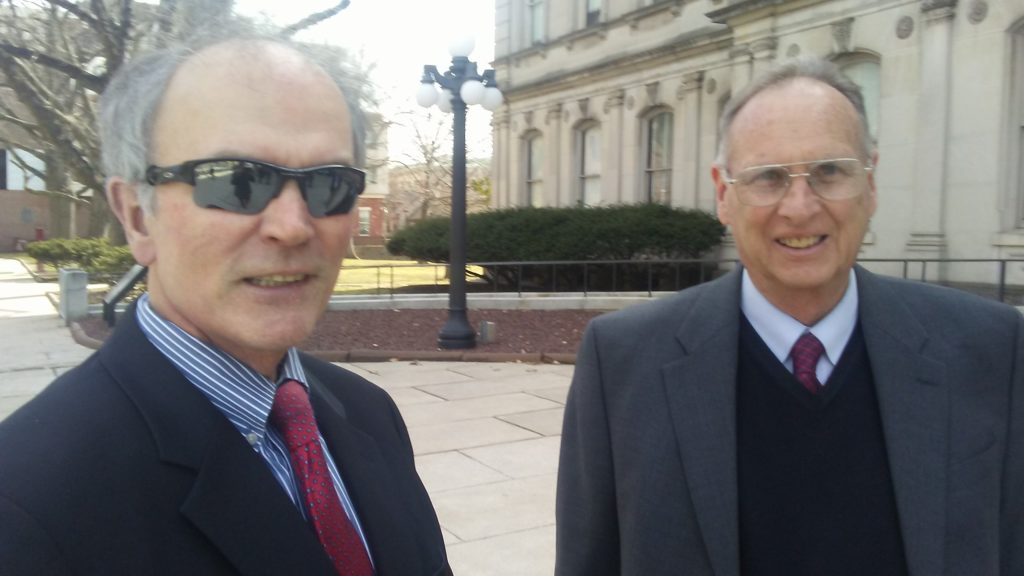ELEC Ain’t Broke; Don’t Try To Fix It

After two years of non-stop Democratic criticism of former president Donald Trump for his baseless and often silly assertions that the 2020 presidential election was rigged against him and allegations of racism and voter suppression aimed at governors and legislatures for enacting stricter voter identification laws, Gov. Phil Murphy is leading the charge to destroy the independent agency that for the last 50 years has enforced New Jersey’s campaign finance laws.
With his support for the grotesquely misnamed “Election Transparency Act,” he’s made a mockery of his boast that he is the most progressive governor in the country and cast his lot with those who yearn for a return to the old-fashioned style of political campaigns when vast sums of money sloshed around the system with little oversight and even less punishment for misbehavior.
Votes on the bill were scheduled for today, but delayed in both houses in response to growing nervousness among Democrats that support was waning and further refinements were necessary.
New Jersey was not unique in its tolerance of corrupt campaign practices — the kind of activity that led to the creation of the election Law Enforcement Commission (ELEC) in 1973, the agency that the governor and Democratic legislative leaders have decided to shuffle off to a forgotten bureaucratic corner surrounded by file cabinets.
Most egregious of all, though, is the air of personal vindictiveness that stains the Administration effort to force the agency’s executive director Jeffrey Brindle from office by designating the position as a gubernatorial appointment rather than as one filled by a vote of the four-member bipartisan commission.
Brindle joined ELEC in 1985 and has been its executive director since 2009.
Reportedly furious after failing in its’ demand for the director to resign, the governor’s office slipped the direct appointment language into the pending legislation.
Needing a cover story, however, to justify its demand, top Murphy staff seized upon a four-month old e-mail Brindle sent to a commission staffer concerning National Coming Out Day and accused Brindle of a homophobic slur so egregious as to warrant his removal.
The governor was unhappy over the director’s repeated expressions of support for requiring so-called “dark money” groups to disclose their contributors — an act which would impact the PAC formed over a year ago to promote him and chaired by the first lady and one of his top campaign advisers.
Retaliation was in order and, if it couldn’t be carried out by direct governor’s office pressure, it would be accomplished by an act of the Legislature to accord the governor the authority to appoint the director by picking from his long list of job seekers looking for a favor — qualified or not -– but who would owe allegiance to the governor and be expected to fulfill the duties with that in mind. Cronyism at its finest.
The legislation significantly weakens the agency’s enforcement capabilities by reducing the statute of limitations on investigations of complaints from 10 years to two years, would apply retroactively and effectively kill any investigations currently underway and create accounts for ancillary or administrative campaign costs — a slush fund in less polite but more accurate term.
It also doubles campaign contribution limits and ends local prohibitions on so-called pay to play.
There is no public service or public good to be found in the legislation. Rather, its effect would be to reduce the state’s campaign finance regulations to stacks of meaningless paper and erode public confidence in an election campaign process that is fair, open and free from the corrupt influence often associated with the prevalence of vast sums of money.
While the criticism by Murphy and leading Democrats around the country of Trump’s outlandish accusations of election fraud was valid, the legislation under consideration in New Jersey undercuts the governor’s posture.
It cuts against his frequent expressions of support for transparency and his commitment to ethical conduct in the political process.
It is, though, the perception of payback that hangs over the attempt to remove the executive director and turn the $174,000 a year position into a patronage hire that is so deeply damaging.
Brindle’s support for disclosure of donors to “dark money” groups enjoys broad support but has critics as well. If the governor numbers among the critics, he is certainly entitled to adopt that position and defend it as he sees fit.
Using his office to punish an opposing view is a bridge too far.
In the context of Murphy’s criticism of Trump and his followers for their unfounded assaults on the electoral process, his support for the pending legislation here brings to mind the Latin admonition “Medice, cura te ipsum” — physician heal thyself — and suggests “Politician, heal thyself” instead.
Carl Golden is a senior contributing analyst with the William J. Hughes Center for Public Policy at Stockton University.









The TRUTH is out. Gov. Phil KNUCKLEHEAD Murphy wants to be the Dictator-in-Chief and make the position of the Governor appointing the ELEC commissioner permanent. This will ensure future dictatorships.
But, hey. Murphy is a Democrat-Communist insanely wealthy Oligarch of the old Soviet Union mold where only a few held the power and the wealth, while the rest of the unwashed masses were on bread lines and eating potato soup for breakfast, lunch and dinner.
Gov. KNUCKLEHEAD needs to be immediately stopped on his quest for unbridled power in the NJ Governor’s office. The Legislature has to either take back their power, or be replaced by Republicans who can do the job of stopping Murphy, either by recall or impeaching him for election interference and election fraud.